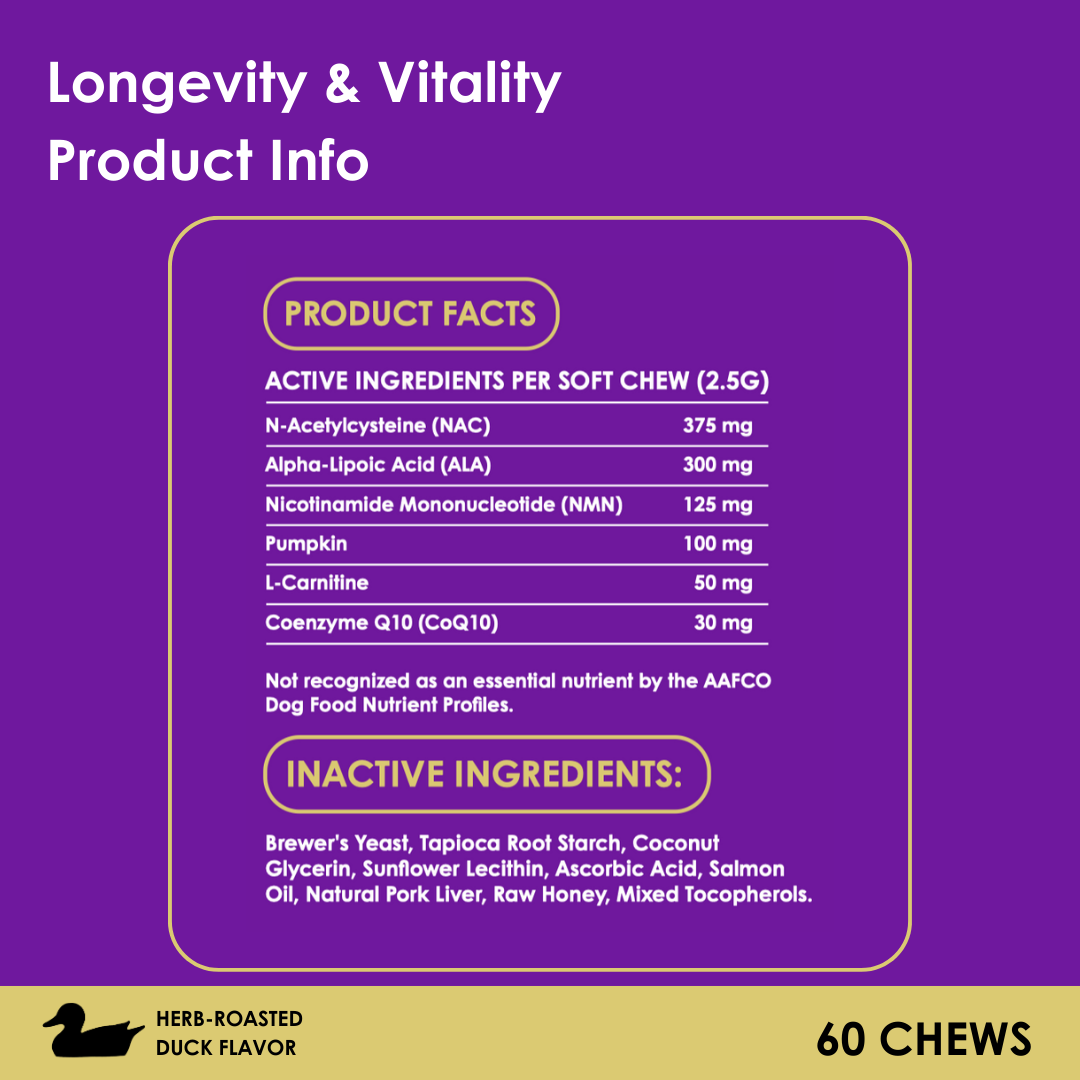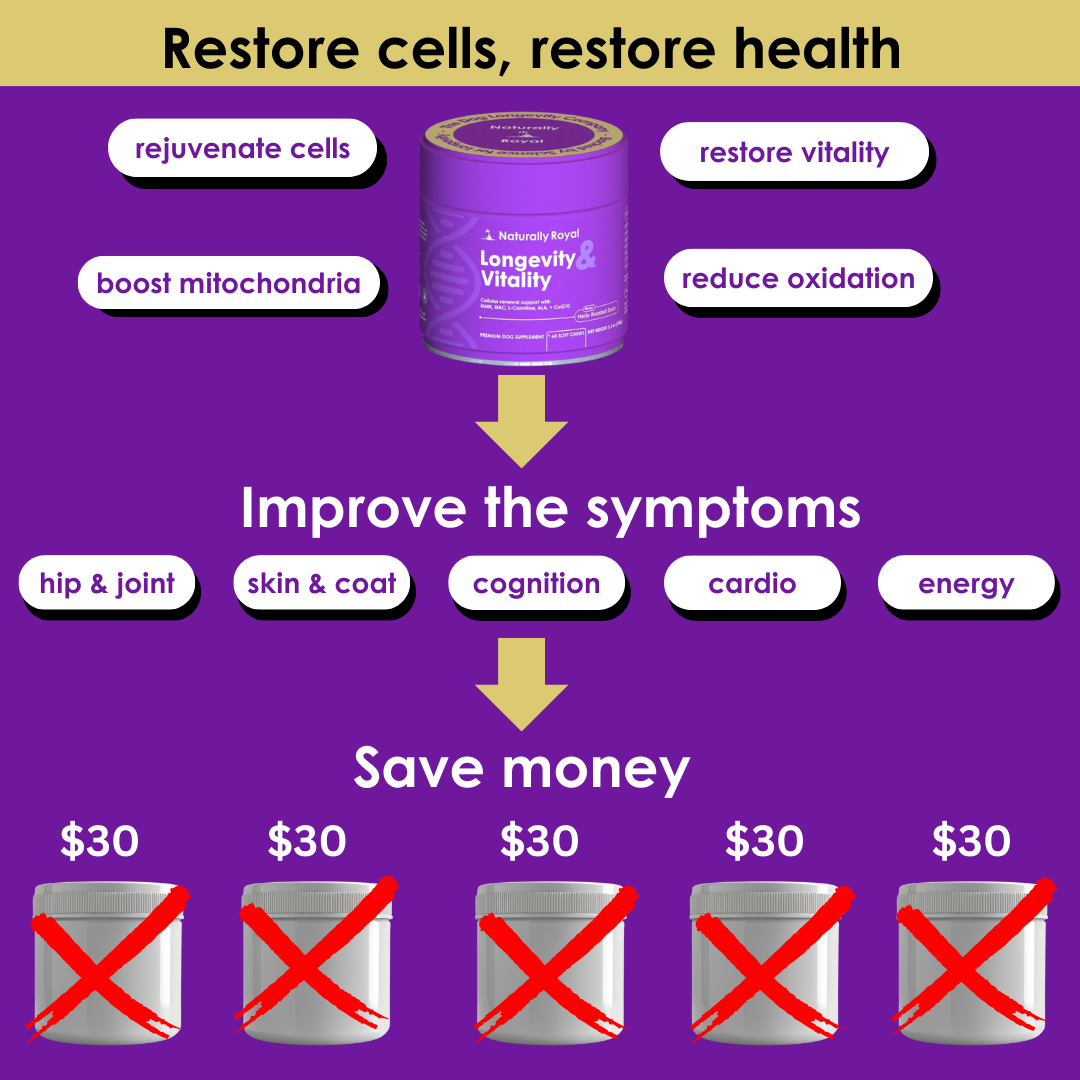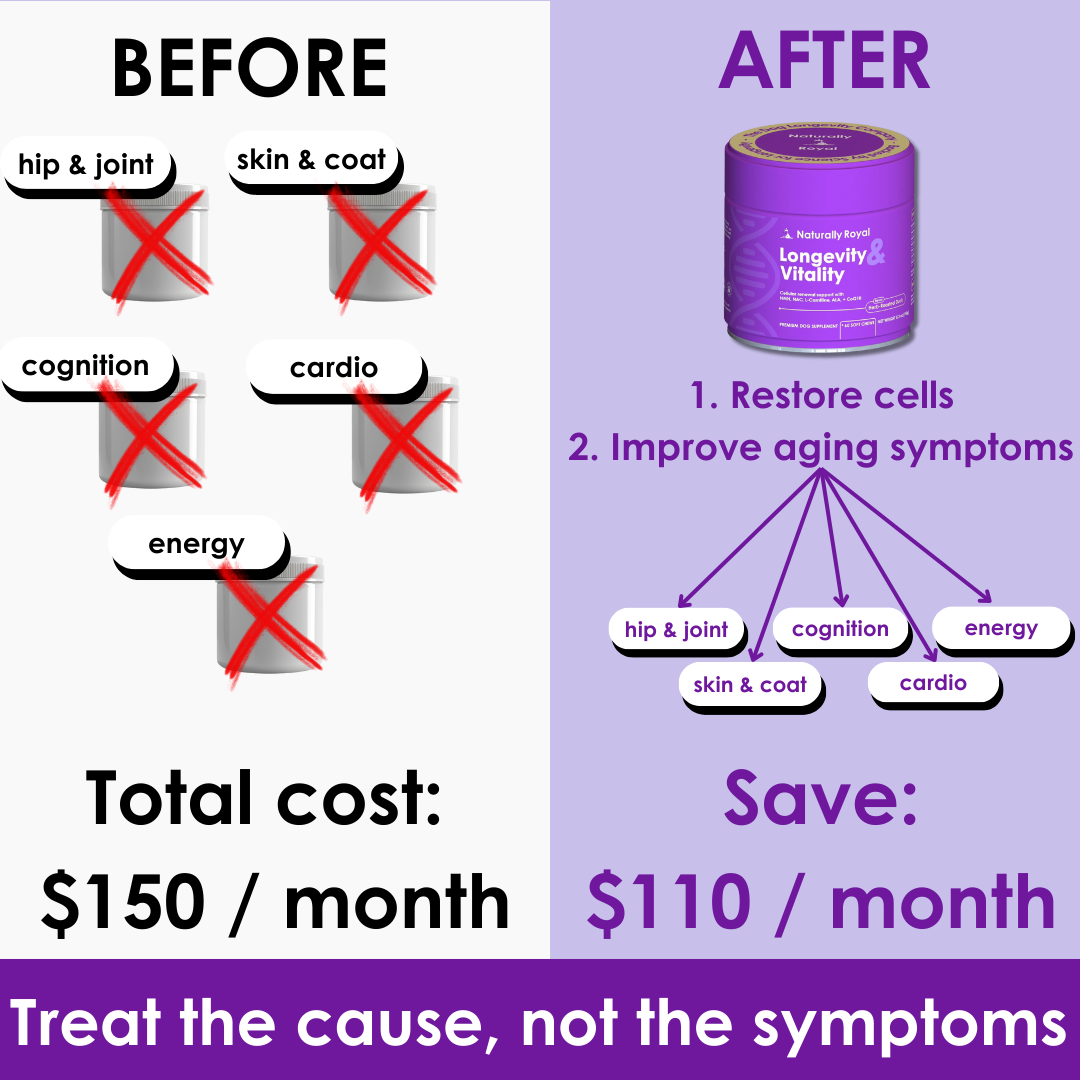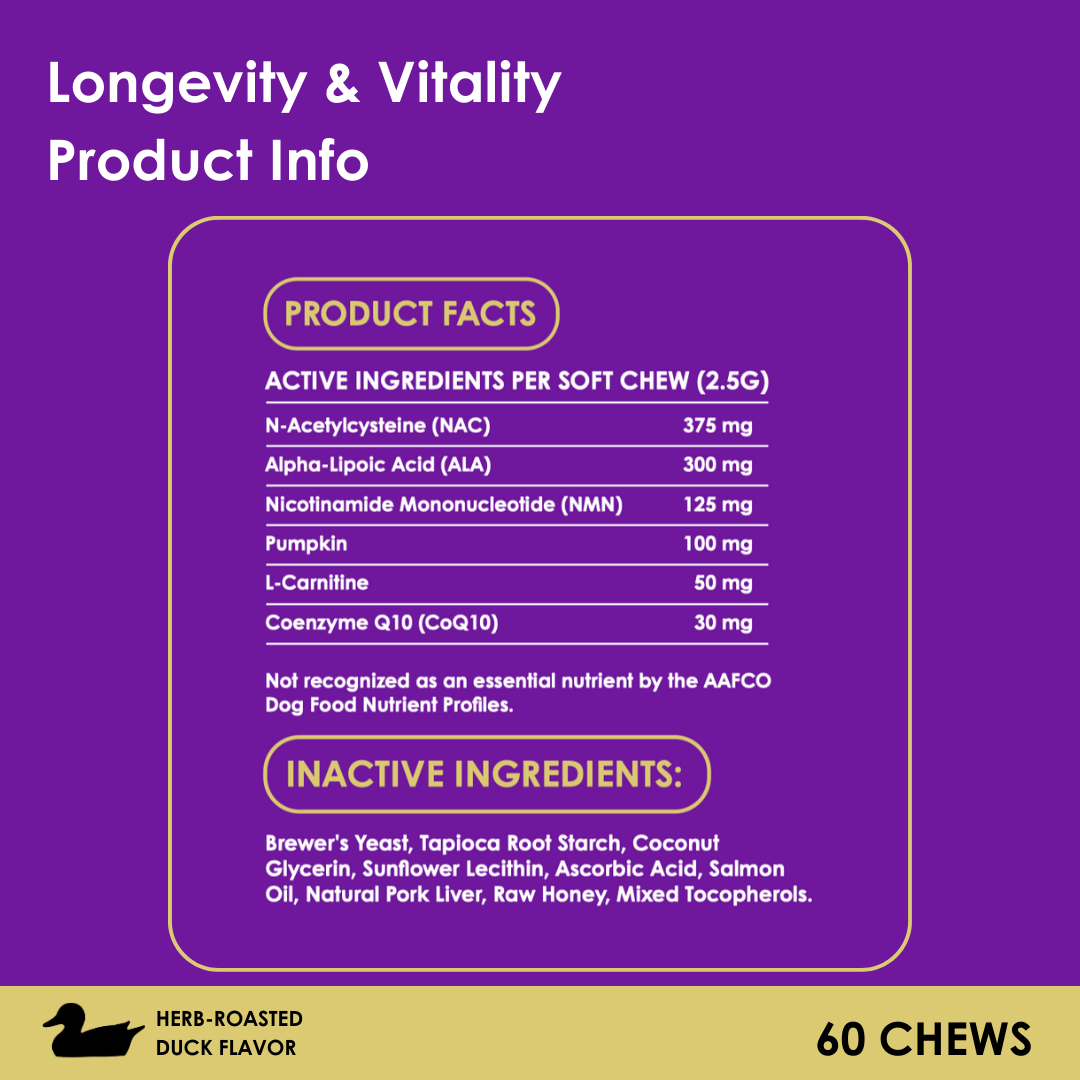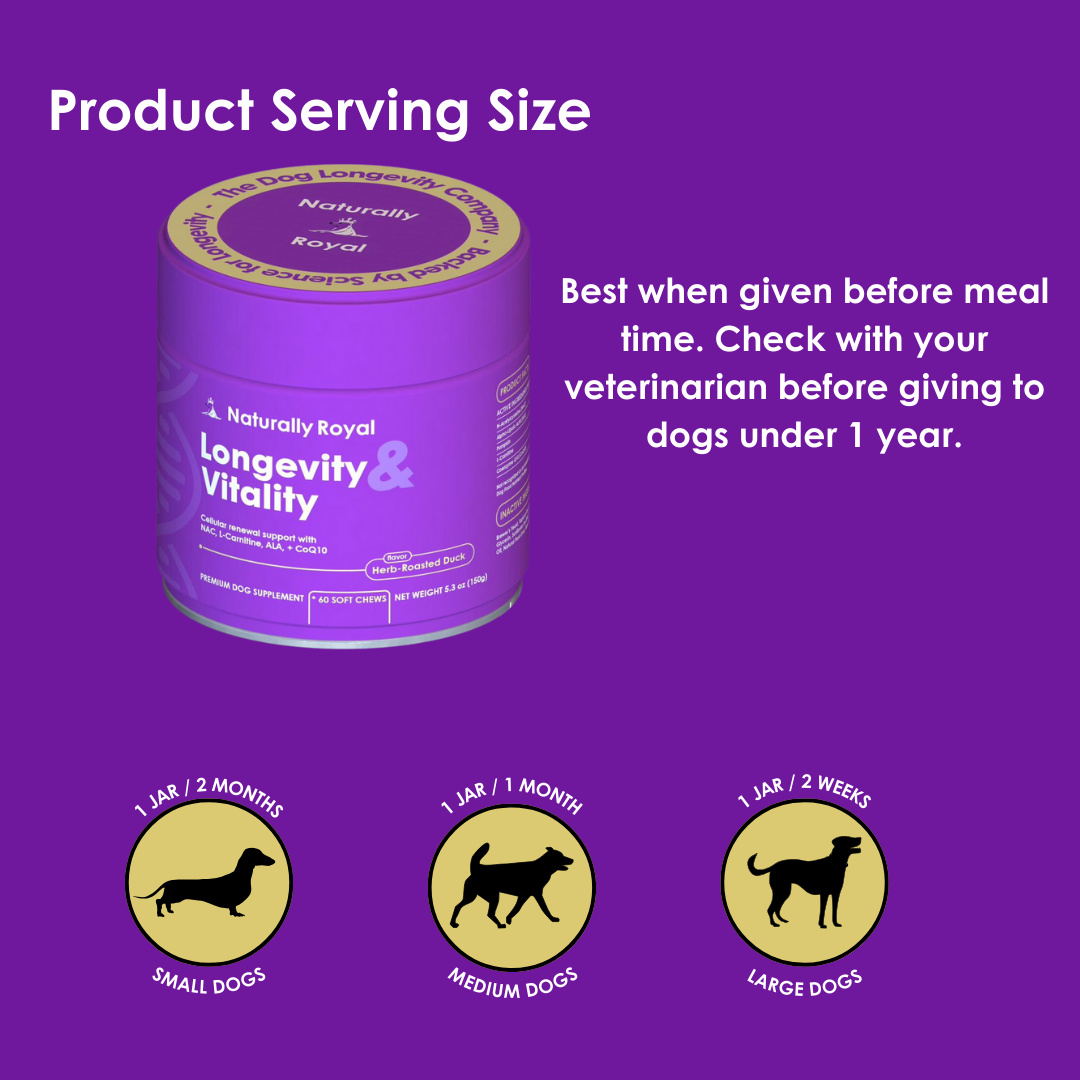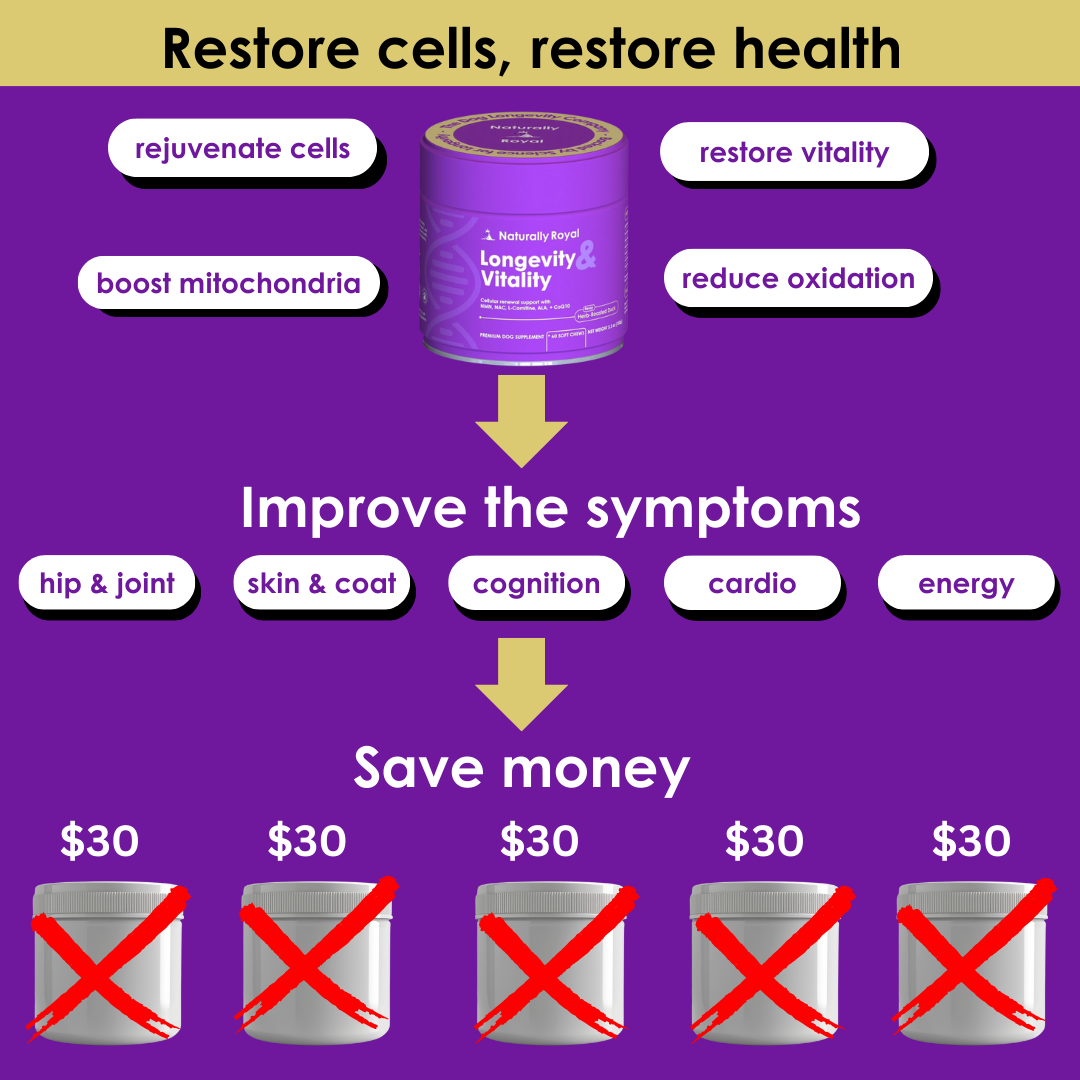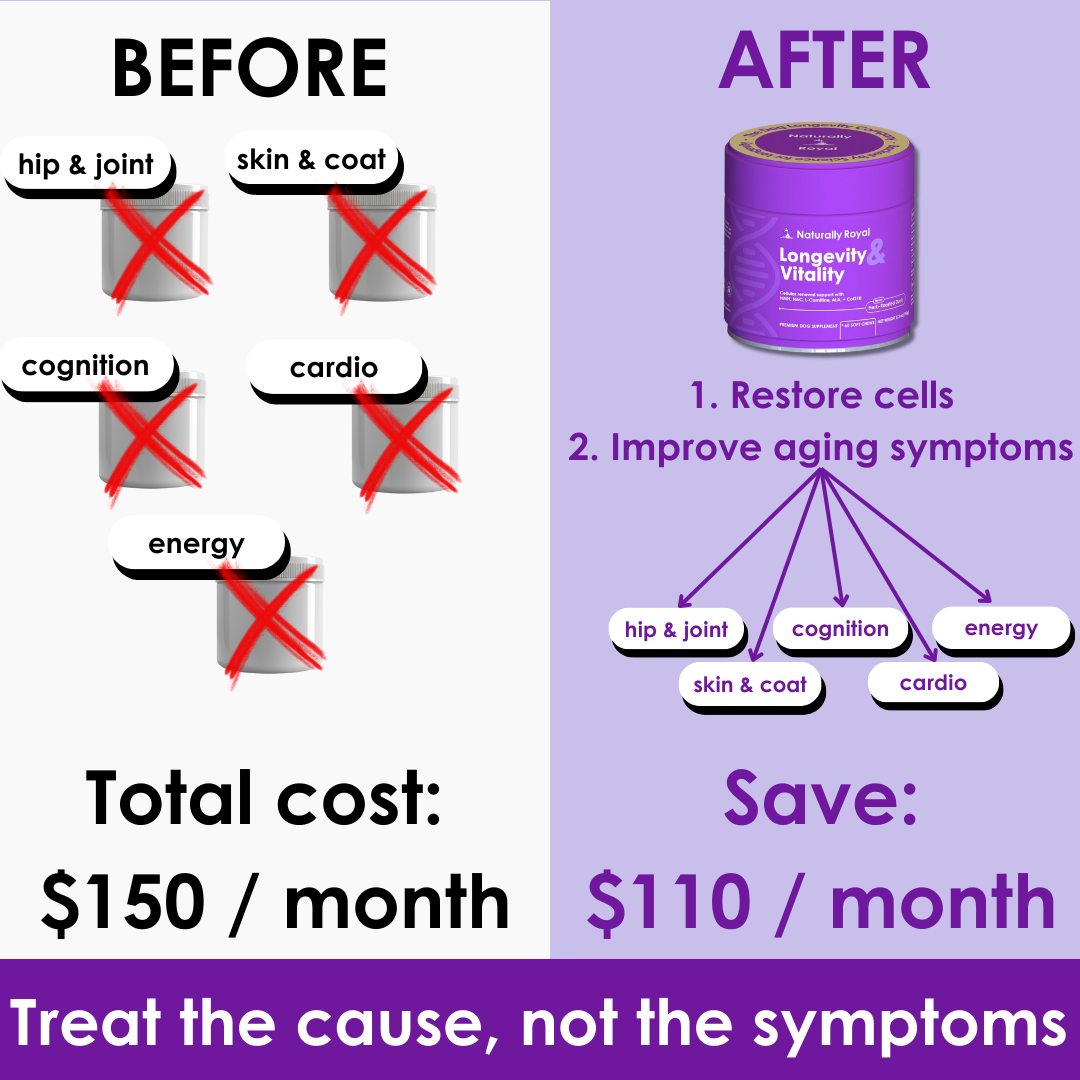Top 5 Reasons Your Dog Has Diarrhea
Diarrhea in dogs can be alarming and uncomfortable, both for your dog and for you as their owner. While occasional diarrhea may not seem serious, persistent or chronic cases could be a sign of underlying health issues that can impact your dog’s overall health and longevity. Understanding the root cause of your dog’s diarrhea is crucial in determining the appropriate treatment and ensuring their long-term well-being.
Here are the top 5 reasons your dog may have diarrhea and what that means for their longevity:
1. Dietary Indiscretion
Cause:
One of the most common causes of diarrhea in dogs is what veterinarians refer to as "dietary indiscretion." This includes eating spoiled food, garbage, or food that is not suitable for dogs, such as human food high in fat, spices, or toxins.
Longevity Impact:
While a single episode of diarrhea from eating something they shouldn’t may not cause long-term harm, repeated instances can lead to chronic digestive issues, dehydration, and nutrient malabsorption. Over time, this could weaken your dog's overall health, leading to a reduced lifespan.
2. Food Sensitivities or Allergies
Cause:
Dogs, like humans, can develop food sensitivities or allergies. Common allergens include certain proteins (like chicken or beef), grains, or dairy. These sensitivities can lead to gastrointestinal upset, including chronic diarrhea.
Longevity Impact:
If food sensitivities are not addressed, ongoing inflammation of the gut can occur, which may lead to more serious conditions like irritable bowel syndrome or colitis. Left untreated, chronic inflammation could negatively affect your dog’s immune system and overall longevity by weakening their ability to absorb nutrients and maintain a healthy weight.
3. Parasites
Cause:
Intestinal parasites such as worms (roundworms, hookworms) or protozoa (Giardia, Coccidia) can cause diarrhea. Puppies are especially vulnerable, but adult dogs can also contract parasites from contaminated food, water, or soil.
Longevity Impact:
If not treated promptly, parasites can lead to significant weight loss, malnutrition, anemia, and a weakened immune system. These issues can all have a direct impact on your dog’s lifespan, especially in puppies and older dogs whose immune systems may already be compromised.
4. Infections
Cause:
Bacterial, viral, or fungal infections, such as parvovirus or canine distemper, can trigger diarrhea in dogs. These infections are often serious and can present with additional symptoms like vomiting, lethargy, and fever.
Longevity Impact:
Some infections, like parvovirus, can be life-threatening without prompt treatment. Even if the infection is not fatal, frequent infections weaken the immune system over time, reducing your dog's ability to fight off diseases and potentially shortening their lifespan.
5. Chronic Illnesses (e.g., Pancreatitis, Liver Disease, or Cancer)
Cause:
Chronic illnesses, particularly those affecting the digestive organs like the liver, pancreas, or intestines, can lead to persistent diarrhea. Conditions like pancreatitis, liver disease, or gastrointestinal cancers may manifest as digestive upset before other symptoms appear.
Longevity Impact:
Chronic conditions can significantly affect your dog’s longevity if not properly managed. Pancreatitis, for instance, can lead to long-term digestive issues and chronic pain, while untreated liver disease or cancer can be fatal. Early detection and treatment are key to extending your dog's lifespan in the presence of these serious illnesses.
When to Seek Veterinary Care
While occasional diarrhea may not require a visit to the vet, certain signs should prompt immediate veterinary attention:
- Diarrhea lasting more than 24-48 hours
- Bloody or tarry stools
- Severe lethargy or dehydration
- Vomiting alongside diarrhea
- Fever or abdominal pain
Preventive Care for Long-Term Health
Addressing the underlying cause of your dog’s diarrhea early can prevent long-term damage to their digestive system and other vital organs. Regular veterinary checkups, vaccinations, and preventive treatments for parasites can significantly reduce the chances of diarrhea due to infection or parasites. Ensuring a balanced, appropriate diet will also help prevent food-related digestive issues.
Conclusion
Diarrhea can be a symptom of a simple dietary issue or a sign of something more serious. By identifying the cause and treating it appropriately, you can help maintain your dog’s overall health and improve their quality of life. In doing so, you’re not just addressing the immediate discomfort of diarrhea, but also supporting their long-term health and potentially extending their lifespan. Keeping a close eye on your dog's digestive health is an essential part of caring for them and ensuring they stay vibrant and active for many years to come.





